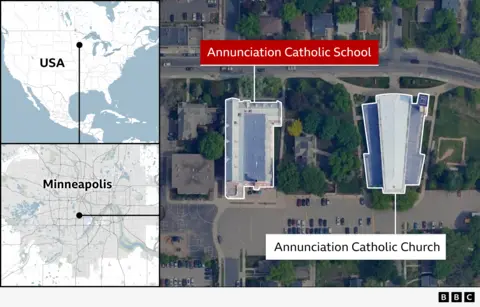After more than a decade since the last papal election, Cardinal Robert Francis Prevost has been elected as the first American pope, taking the name Pope Leo XIV. His election represents a pivotal moment in the history of the Roman Catholic Church as he leads over 1.4 billion followers worldwide. The new pontiff appeared on the balcony of St. Peter's Basilica, extending a message of peace, stating, “A united church, always seeking peace and justice.”
Born in Chicago and serving for over two decades in Peru, Leo XIV’s extensive experience in diverse cultural contexts positions him uniquely as a bridge-builder within the church. His emphasis on humanitarian issues aligns him closely with the preceding pope, Francis, whose legacy centered around inclusivity and aid for the marginalized. Leo's past work in impoverished regions during turbulent times, specifically in northern Peru, highlights his commitment to the poor and vulnerable.
The conclave, comprising 133 cardinals, faced the task of uniting varying ideological factions within the church, reflecting on whether to maintain Francis's more liberal policies or revert to traditional conservatism. Many viewed Prevost as a candidate who could balance these opposing views, eliciting hope from both progressive and conservative supporters.
Following the announcement, reactions poured in from around the globe. Leaders expressed their congratulations, with U.S. President Trump referring to it as “a great honor” for America. In Peru, where Leo served as a bishop, the election was celebrated with great enthusiasm, underscoring his dual identity as an American and a Peruvian citizen.
As one of the most influential leaders within the Vatican prior to his election, Leo XIV oversaw the selection of bishops and maintained a focus on the church's social teachings. The new pope's initial address emphasized peace and a desire for unity amidst societal divides, though observers remain cautiously optimistic regarding his views on LGBTQ inclusion, which have not been clearly defined.
Leo XIV is marked not just by his American roots but also by a complex family heritage that includes connections to New Orleans' Creole community, a fact that has sparked conversation about diversity within the church's leadership. His papal name aligns with Pope Leo XIII, famous for advancing social justice, hinting that Leo XIV may prioritize similar issues during his papacy.
As the Catholic Church steps into this new chapter, the world watches closely, hoping that under Leo XIV's leadership, the church will continue to foster inclusion and advocate for social justice on a global scale.



















